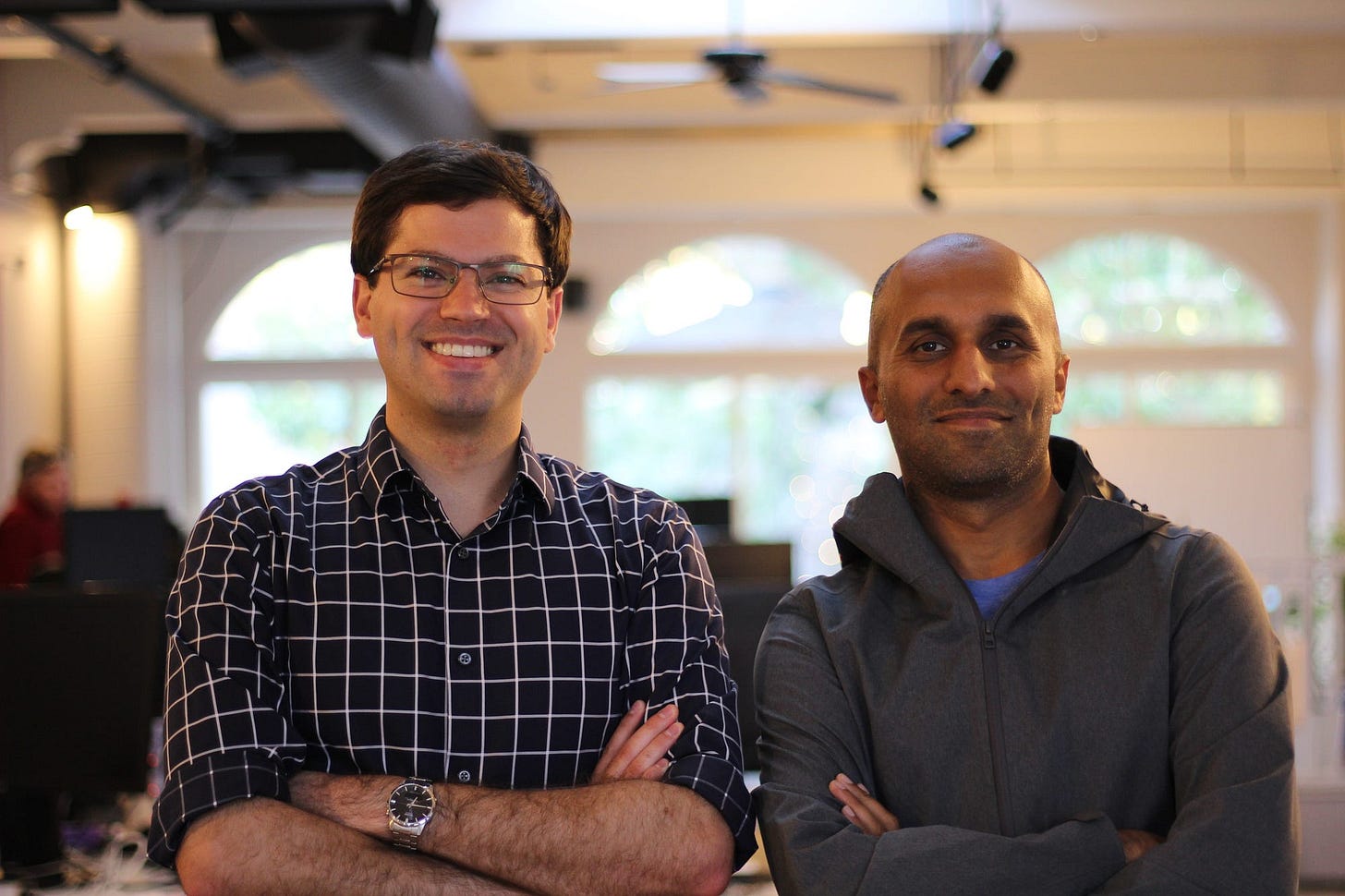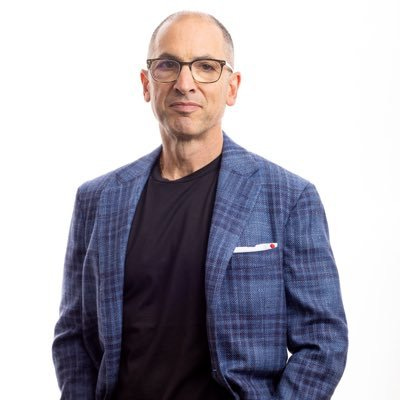How Floodgate Differentiated Again From Thousands of Seed Firms
Top takeaways from this week's interview with Floodgate Co-Founder, Mike Maples, Jr.
On the latest episode of Turpentine VC,
is joined by Mike Maples, Jr, co-founder of Floodgate, a storied seed firm that's invested in Lyft, Okta, Twitch, and Twitter, to name a few unicorn portcos.Thank you to our sponsor, Synaptic. Synaptic is the modern data platform for leading investors. Synaptic lets you surface high-growth opportunities that were invisible earlier. Easily filter companies by your choice of industry, funding stage, geography and 100+ company performance metrics like user traffic, employee data, app downloads, product reviews, and more! Our sector experts-driven curation and AI/ML insights mean that you look at real actionable signals and not grapple with noisy datasets. Sign up for a free trial and see for yourself what you are missing!
Now onto our top three takeaways from the episode:
One: force a choice, not a comparison.
Mike: “So business is never a fair fight. The only question is who gets to fight unfair. And when you're an upstart, the default option is the incumbent gets to fight unfair. The incumbent has the advantages of incumbency.
And so the only way that an upstart can behave unfairly is to change the subject, is to deny the premise of the current rules. When I talk to founders, that's why I say force a choice and not a comparison. When people took a Lyft ride, they didn't say, ‘Oh, yeah, but how does that compare to taxis?’
That's what you really want, right? Blake Scholl's now doing Boom Supersonic. Nobody's going to say, ‘Oh, well, how does that compare with like normal jet travel?’ You can't compare the two.
So when you're a startup, you want to offer something that is so radically different that it literally breaks the pattern of how people are currently doing things.

You want to have something that can't be reconciled with what's come before it. When we were in the early days of Floodgate, nobody said, ‘Oh, well, how does that compare to Sandhill Road?’ We were writing $500,000 checks. The other guy's writing $5,000,000 checks. There was us and just a few other guys.
Now, there's thousands of seed firms. So I found myself in this funny position of, am I a hypocrite now? Because I am playing the comparison game. Under what basis am I able to say to a founder, ‘don't play the comparison game?’
Now I'm being compared in every deal I do. So I decided to shift the strategy. I decided I was going to try to predict who's going to be a great founder someday and get to know that person before they have a startup.
[Erik] and I are involved in a company together, Applied Intuition. It’s is a good example of the strategy. I've spent 14 months on and off with the founder, Qasar Younis, before we wrote a check. Why did I do that? Well, by the time they decided they wanted to start a startup, I get to say:
‘Hey, look, we know each other. We know what it's like to work together. We know whether we want to get in trouble together or not. So here's my question to you. Do you want to do something? Yes or no.
And if we want to work together, let's find a deal that's fair. It'll be higher price than I want, lower price than you want, but life is too short. And if you go pitch 10 other firms, you might get a better deal, but you're not going to know these people for more than two hours.’

And you just can't reconcile that. You can't reconcile the choice between us working together, and you taking the best deal from somebody you meet for two hours. That's that's how I decided to do it.
I believe fundamentally, you must force a choice. You must. And if you don't force a choice, and if you play the comparison game, you can do well, but you'll only do well relative to the average. It's only a question of how much better than the average slightly do you do.
It's kind of like index investing, right? If you do what other people do, you're never going to seriously outperform. You'll only slightly outperform at best.”
Mike on how YC’s economics are non-consensus, and how they force a choice, which leads to their super-human performance:
Two: find the pattern-breakers.
Mike: “There's this term that I like. I call it pattern breakers. People say that VCs are about pattern matching, and I actually reject that.
I think good venture capital is about understanding where the pattern is about to be broken. Humans are pattern seeking creatures. We brush our teeth every day. We drive to work the same way. We behave according to a pattern, because it enhances our survival.
But in startups, we go back to this premise that it's never a fair fight. A startup has to engage in activities that break patterns. They have to do two things:
Have an idea that's pattern breaking, that defies the norms, that changes the rules.
The founders themselves have to engage in pattern breaking behaviors.
For example, Justin Kan, when he pitched me on Justin TV at the time, it was a terrible idea.
I remember thinking, ‘this is a terrible idea,’ but I like this guy and I like the technology they're building. And then that night when I was studying it some more, they had sold their prior company, Kiko, which was a calendar company.
They'd sold it on eBay and I was like, ‘who does that?’ These are the kinds of guys that win because they're pattern breakers. They engage in behaviors and activitie that conventional people wouldn't normally engage in.
In hindsight, one of the foolish things that I did was passing on a startup called Air Bed and Breakfast before it applied to YC. Brian Chesky, when he pitched me, it was a room full of cereal boxes, Obama O's and Captain McCain’s. Looking back on it, that was much more of a feature than a bug.
Because it showed that he was willing to do unconventional things to get unconventional results. And so that's a lot of what I look for. When I'm talking to founders or prospective founders, I'm trying to understand, what are the types of things that they're wildly interested in just for their own sake?
What are projects they've done in their lifetime that they did just because? That don’t improve their status or the dominance hierarchy, but rather, were just things that they did for their own sake, for their own independent reasons. That that's been a, an important indicator for me a lot of times.”
Three: discipline and patience are a form of arbitrage.
Mike: “The venture industry is getting increasingly more of an efficient market, and that's true whether you're a specialist or a generalist. You can make money either way. I would say Roger Ehrenberg at IA Ventures is a specialist. I'd say that Mike Speiser at Sutter Hill is a specialist.
You always know what a Roger Ehrenberg deal was going to look like. And you always know what a Mike Speiser deal is going to look like. But not many people are disciplined enough to do the thing they do extremely well over and over again. That takes a lot of discipline. And, discipline and patience are a form of arbitrage, right?
The generalists can have advantages as well. They might have a better platform. They might have a good brand. There's a whole set of different things you've got to work on. Generalists have the advantage of not getting attached to an area where if it's not paying off anymore, they can move to a different area.
But in all cases, the thing that people always have to ask is, where's their inefficiency? That plays to my advantage and what can I do that other people can't to exploit that advantage? If you don't have an answer to that question, the tendency is to invest still because you're like, ‘I've got to be in the game and my LPs expect me to invest.’
But I would say no, that if you don't have an answer to that question, you got no business investing LP money. You're just doing investing rather than really investing.
There are a few things that Roger does really well. He knows what he's looking for. And he's very clear about it. He says, ‘I want software margins.’
And if he doesn't see a project that has software margins, like if he sees DoorDash…he's like, ‘DoorDash might be a great company. Doesn't have software margins, not a Roger Ehrenberg investment.’ He is just incredibly focused and disciplined. He has a good set of rules for what he looks for.
He looks for only those things. He invests in only those things. He tells the world, ‘I'm investing in only these things. Here's what I'm looking at. Don't pitch me if you don't have those things.’ And he does it over and over and over again.
The other thing he has is just really high standards and he just has integrity. I mean this not in a boy scout sense. To me, integrity is knowing what you stand for and not deviating from that thing when it's potentially convenient to deviate. He makes the hard decision to stay who he is, and that's hard to do over 15 years.”





